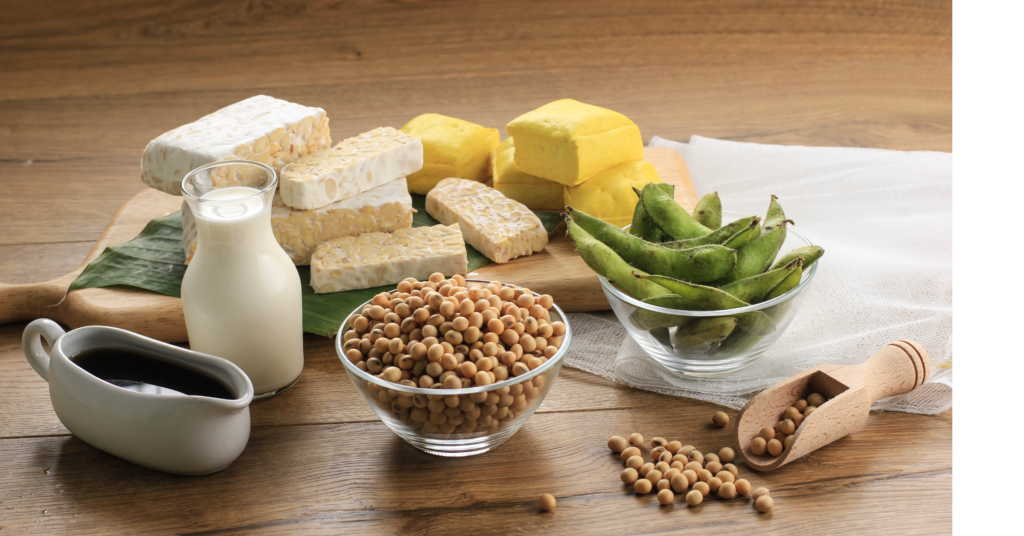
The French government has invested in 10 projects to expand domestic plant protein production, in direct contrast with its efforts to ban plant-based meat labels and soy products in schools.
Are plant proteins finally getting a break in France?
The country’s agriculture and food sovereignty ministry has announced 10 winners of its Territorial Legume Sector Projects, pumping in €11.7M for efforts to ramp up local plant protein production.
The call was first launched in June 2024, as part of the ministry’s National Strategy for Plant Proteins, which aims to reduce reliance on imported plant proteins and develop a range of local products.
The ‘protein sovereignty’ initiative is backed by the funds for sovereignty and ecological planning transitions, and supports projects committed to the development of domestic plant proteins. The winners, the ministry said, can benefit from dedicated support, particularly for downstream investments and funding needed for the production of prototypes and project engineering.
Which projects won France’s plant protein grants?

Two of the winning projects are directly aiming to produce food for human consumption. The DSLFB project, led by Berry Graines, aims to boost the added-value legume sector, particularly through investments in packaging tools and strengthening traceability and quality. Texipro, meanwhile, is leading an eponymous effort to create an industrial unit for the primary processing of textured vegetable proteins using crops like soybeans.
The Innov’Légumineuses project, led by Bioalva, highlights an innovative process for fermenting locally produced seaweed and legumes, enabling scale-up to an agrifood unit.
Vivescia, a cooperative group of over 10,000 farmers, is spearheading the AGIL project, aimed at developing seed sorting and packaging, while Axereal’s CultivUp project aims to boost a processing tool offering new outlets for legume crops like peas and broad beans.
The ColeGra’m initiative looks to create a profitable local sector for the production and marketing of legumes, and is led directly by stakeholders in the upstream agriculture sector.
Another project, titled Finovaleg, aims to enhance seed sorting capacity and fund R&D activities for the industry, and Déshyouest (led by the cooperative of the same name) is focused on improving the group’s “carbon-free alfalfa dehydration tool”.
Then there’s the TP2030 project, which looks to increase post-harvest processing and storage capacities to help French lentils regain market share. And the Leg4All project, led by Terres Univia, will promote best practices to increase the uptake of legumes in menus.
“Currently, more than one million hectares are planted with plant-protein-rich crops. One of the ministry’s objectives is to reach 10% of France’s usable agricultural area by 2030,” said Annie Genevard, the agriculture and food sovereignty minister. “These projects will accelerate our progress in food sovereignty and also contribute to meeting our environmental transition challenges.”
Investment contrasts with France’s continued attacks on plant-based food

France’s legume focus is in stark contrast with its moves to inhibit the alternative proteins sector over the last few years. It has long been a proponent of a ban on the use of meaty terms on plant-based product packaging.
It has tried to impose a labelling ban twice since 2023, with the most recent attempt being rejected by both the national Conseil d’État and the European Court of Justice. But earlier this month, French MEP Celina Imart kickstarted another such attempt at the EU level, proposing a ban to the European Parliament, which will vote on the measure after the summer.
That was followed swiftly by a similar proposal from the EU Commission last week, days after Genevard targeted the term ‘veggie steak’ in a debate on proteins at the Agriculture and Fisheries Council.
And despite the investment in domestic plant proteins, France’s food safety agency has recommended a ban on soy-based products in mass catering environments like schools, corporate cafeterias, and daycare facilities. The move was based on its assessment of health risks linked to the consumption of foods rich in isoflavones, which have long been debunked by scientists.
Consumer perception runs contrary to these anti-alternative-protein measures. In France, sales of plant-based food grew by 9% in 2024 to reach €537M, making it the third-largest market for these products in Europe. Chilled meat alternatives recorded a 15.5% growth. At the same time, research suggests that meat intake has fallen over the last two decades.
That said, the ‘protein sovereignty’ project aligns with the 35% of French residents who rate legumes and pulses among the richest sources of protein, and the two-thirds who eat foods like beans, grains, lentils and wheat weekly. For a third of these consumers, nutritional benefits are the major driver behind the increase in intake – these 10 projects will hope to build on that.
The post In Rare Break from Plant-Based Attacks, France Pumps €12M Towards ‘Protein Sovereignty’ appeared first on Green Queen.
This post was originally published on Green Queen.